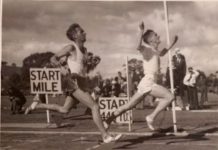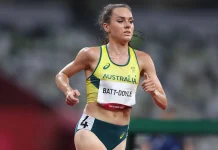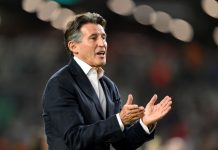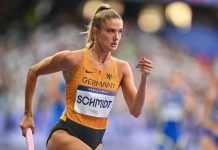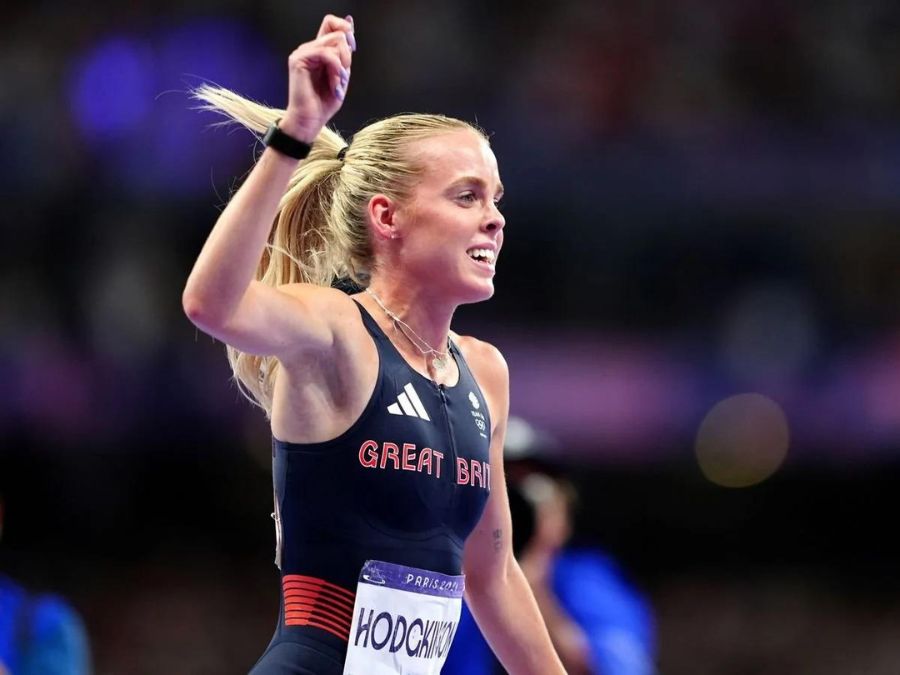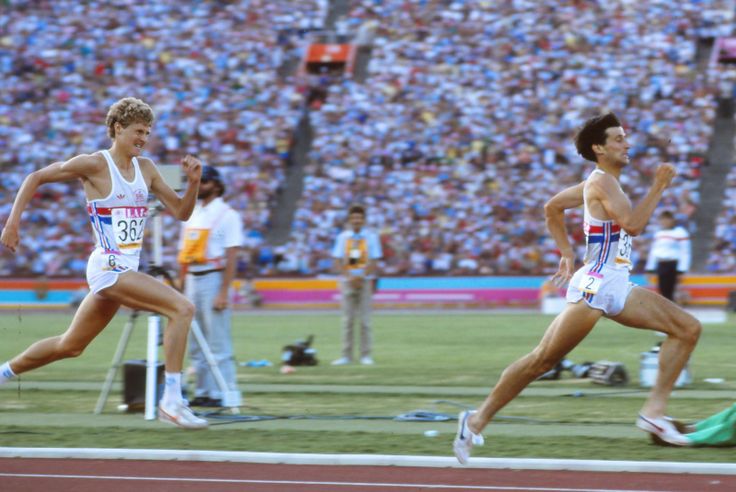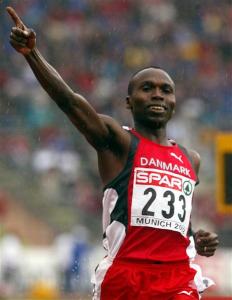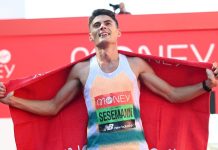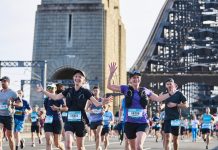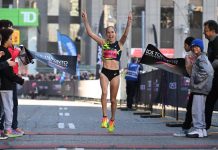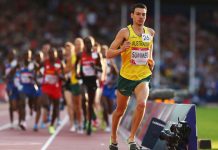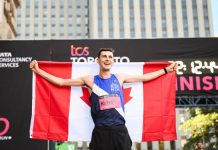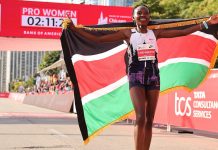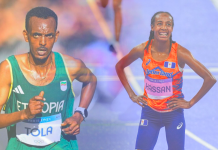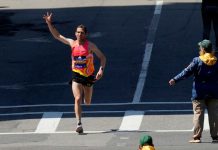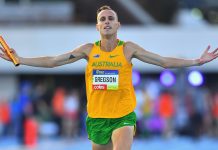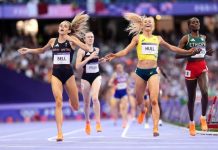By Len Johnson
Seb Coe has occasionally mused about the desirability of the world championships or Olympic Games being the crowning event of the year, the high point of a crescendo building through the year.
Here’s an idea. Why not create a permanent home for global championships in Australia. That way the season-enders would be coming Down Under at the beginning of the spring-summer season. No more coping with the possibility of late-summer storms in the northern hemisphere, instead it would be spring sunshine on either side of the Australian continent.
In the likely event that doesn’t happen, however, and in the only slightly more likely scenario the “really big season-ending” event World Athletics is introducing in Budapest in 2026 is not an immediate and huge success, we’re stuck where we are now. Where we are is a mid-season global event for which everything stops for a period of time before and after before a sometimes clumsy re-start.
To wit, the post-Paris resumption of the Diamond League with the Athletissima meeting in Lausanne. Timing a return to post-Olympic competition is somewhat analogous to Goldilocks’ porridge: too early for some, too late for others, just right for some other ‘others’
For a few, it was just too much to contemplate. They’ll always have Paris, but that’s it for 2024. Keely Hodgkinson announced a few days before Lausanne that an unspecified injury had ended her season.
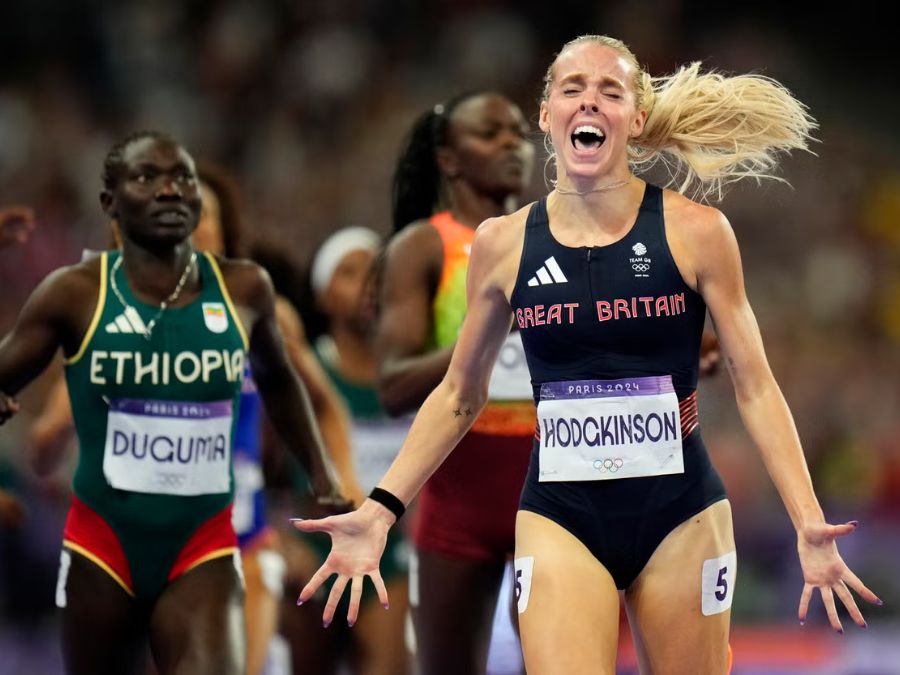
“No more races for me!” – 800 gold medallist announced on her social platforms. “Unfortunately I picked up a small injury but we achieved everything I had hoped to do this year, thank you for all the love and support! See you on the track next year.”
Hodgkinson wasn’t down to run in Lausanne, but had races scheduled in Berlin and Brussels. Given her series of global silvers before winning in Paris, achieving everything she had hoped to do this year may have tipped the scales towards pulling the pin than a minor injury.
View this post on Instagram
Covid cruelled Noah Lyles in the 200 final in Paris and may also curtail his 2024 season. Another one bites the dust. Sydney McLaughlin-Levrone is on holiday with her hubby after an extended European season of – checks notes – just the Olympics. Lucky Sydney has that streak of run 400 hurdles-win 400 hurdles – set new world record in 400 hurdles to keep her name up in lights.

But the timing of post-majors competition has always been problematic for some. Lausanne was a full 12 days after the last night of track and field in the Stade de France, so presented every athlete with a question of how quickly they got back to training.
Eleanor Patterson solved that conundrum neatly. The Australian high jumper just didn’t get back to training.
“Post- any major championships is difficult,” Patterson said on Athletics Australia’s website.
“I certainly felt quite exhausted after the excitement and build-up of the Olympics. The post-Olympics slump is real, I’ve been sleeping so much and giving my mind and body time to play catch-up. It’s only been in the last few days that I’ve been feeling a little bit more energised again.” Staying in a familiar and home-like space in Italy for the last 10 days has helped me fill up the cup and just enjoy the end of the season.”
Worked for her, Patterson jumped a season’s best 1.96 to finish second behind Yaroslava Mahuchikh’s 1.99 but ahead of fellow-Aussie Nicola Olyslagers’ 1.92.
Presumably, whatever Mahuchikh did worked out alright too. Same with Mondo Duplantis though he was reduced to a meeting record 6.15 in wining the pole vault which was held on the shores of Lac Leman the evening before the main program. Kurtis Marschall was fourth, one of four to clear 5.82.
Paris 200 champion Letsile Tebogo –who almost qualifies for the U20 world championships – was another to follow Patterson’s recovery regimen. “I didn’t train for eight days,” he confessed at the pre-meeting media conference.
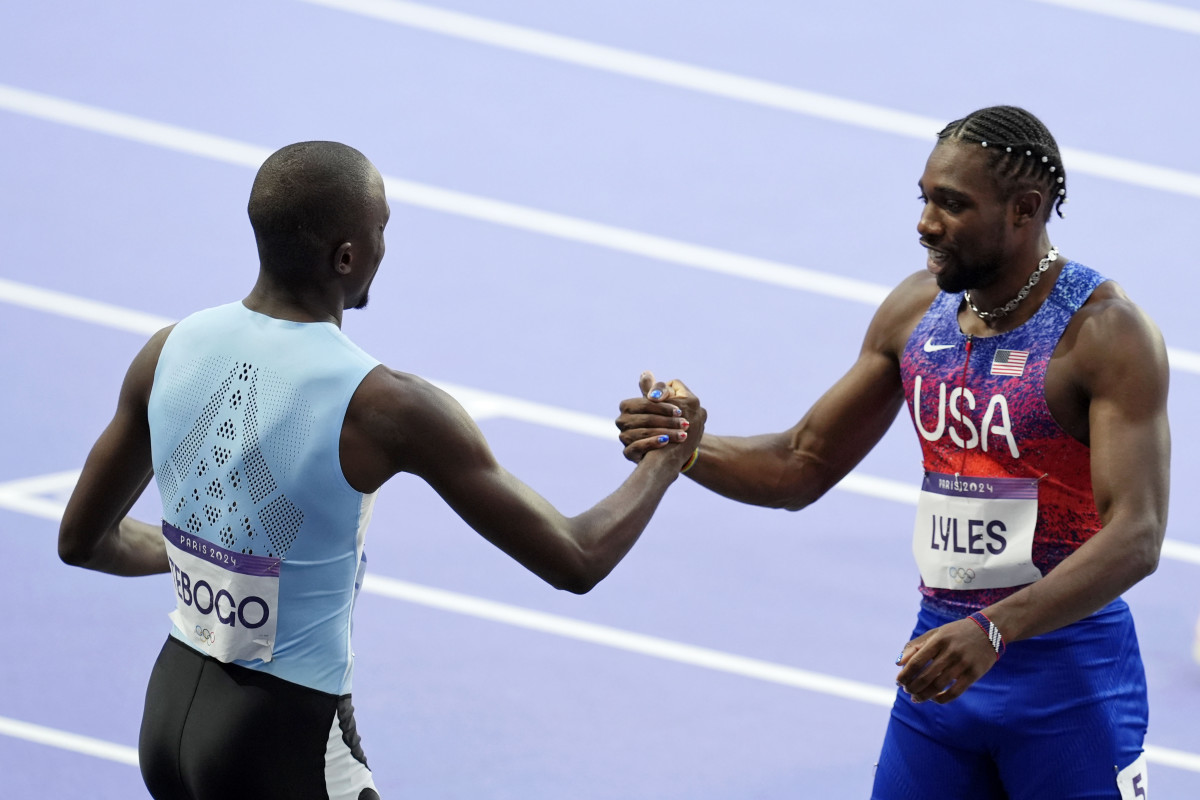
It made little difference. Minor medallists Kenny Bednarek and Lyles were missing, but Tebogo ran a smooth 19.64 to defeat Paris fourth placer Erriyon Knighton and Fred Kerley.
Mary Moraa was a little disappointed with her bronze medal in Paris in a race which may have played to her strengths. She made up for it here, however, with a win in the women’s 800 in 1:57.91.
Redemption hung thick in the Swiss air. Jakob Ingebrigtsen ran 3:27.83 to beat his conqueror Cole Hocker in the 1500 by a full two seconds (Stewart McSweyn and Oli Hoare finished well back). Femke Bol won the 400 hurdles in 52.25 and no doubt sent the absent McLaughlin-Levrone a card wishing her a happy holiday.
Emmanuel Wanyonyi beat Marco Arop to the Olympic gold medal by one-hundredth of a second. If you want an illustration of how journalists always pick the most impressive-sounding statistic rather than the most appropriate one, Wanyonyi had 61 times that margin in Lausanne where he won, 1:41.11 to 1:41.72.
Personally, I find these statistics more impressive: Wanyonyi is now equal with former world record holder Wilson Kipketer in fourth place on the all-time performances list. The only faster times ever run are David Rudisha’s 1:40.91 world record at the London Olympics and his 1:41.01 and 1:41.09 (both world records) in 2010.
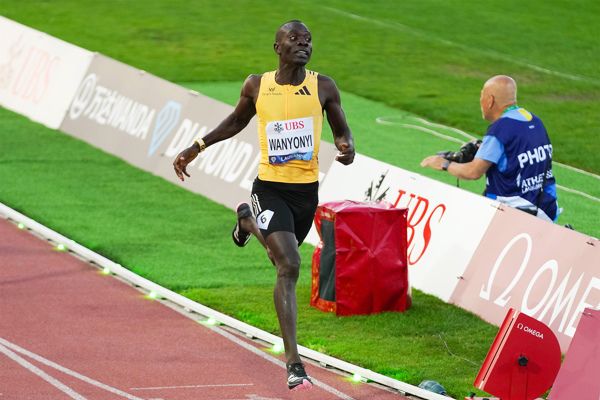
Another to find Swiss timing ‘just right’ was two-time world champion javelin thrower Anderson Peters whose 90.61 best was just over a metre clear of Neeraj Chopra’s 89.49.
Athletes were much quicker to get back into competition in not-so-long-ago days. Back then, Zurich’s Weltklasse meeting was held within a week of the Games’ closing. That included 1996 when the Games were in Atlanta and 2008 when they were in Beijing. Only difference was that it was easier to get back to Switzerland when the major championship was also in Europe.
The compressed timing didn’t worry some athletes. In Zurich in 1997, just three days after the Athens world championships finished, Wilson Kipketer ran a world record in the 800, as did Haile Gebrselassie in the 5000 and Wilson Boit Kipketer in the steeple. All were gold medallists from Athens, ‘Geb’ in the 10,000, Kipketer in the 800 and Boit Kipketer in the steeple.
Some athletes just make their own time.



